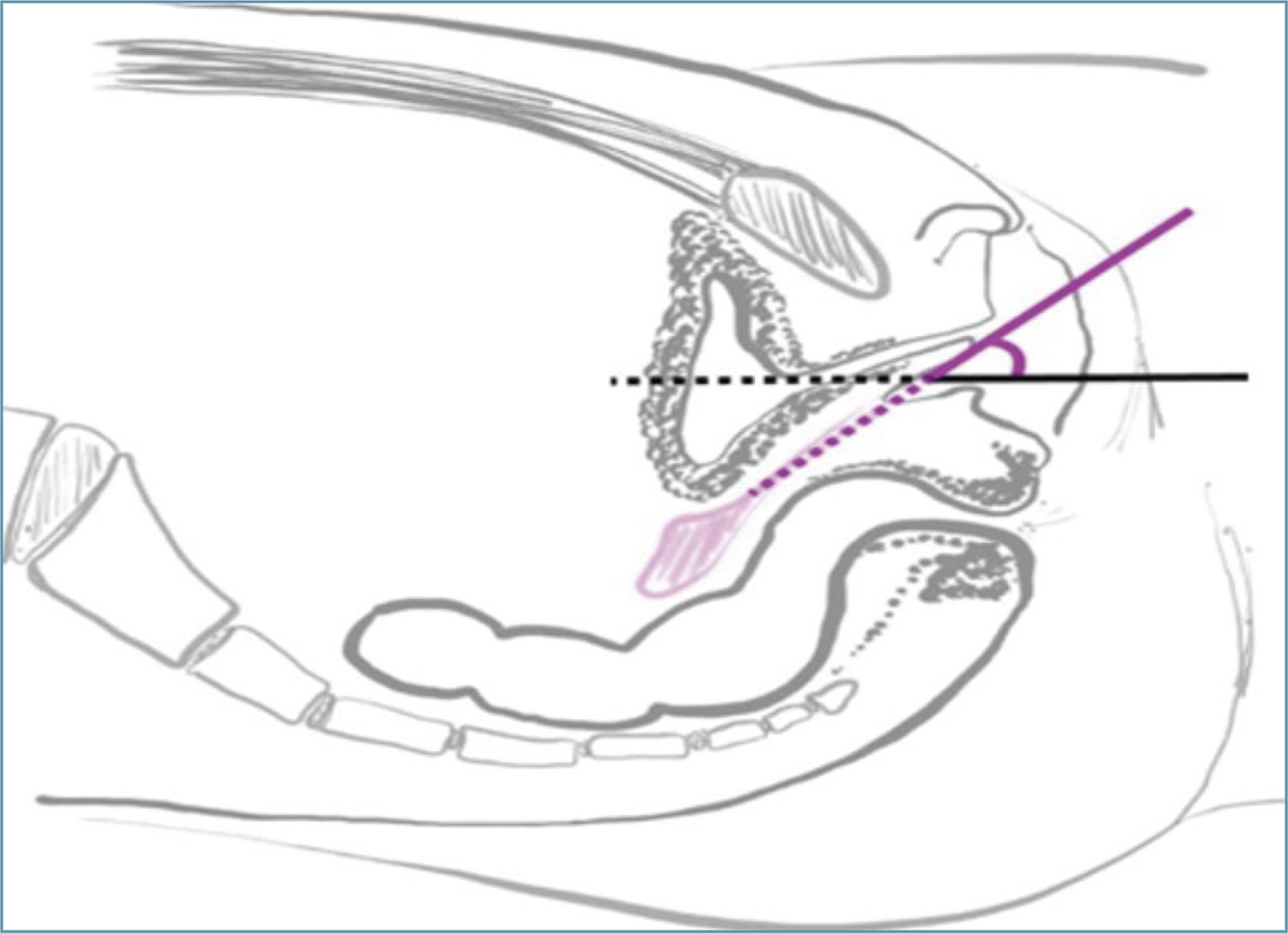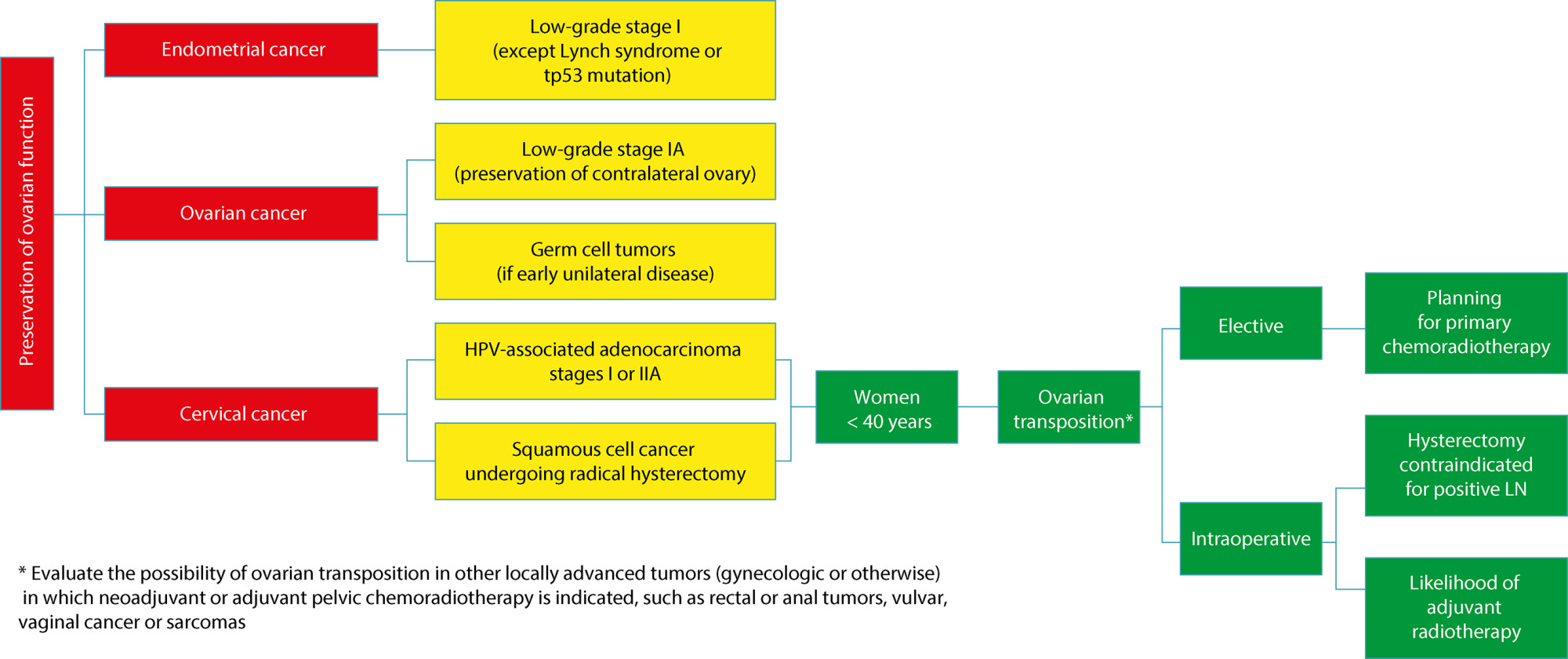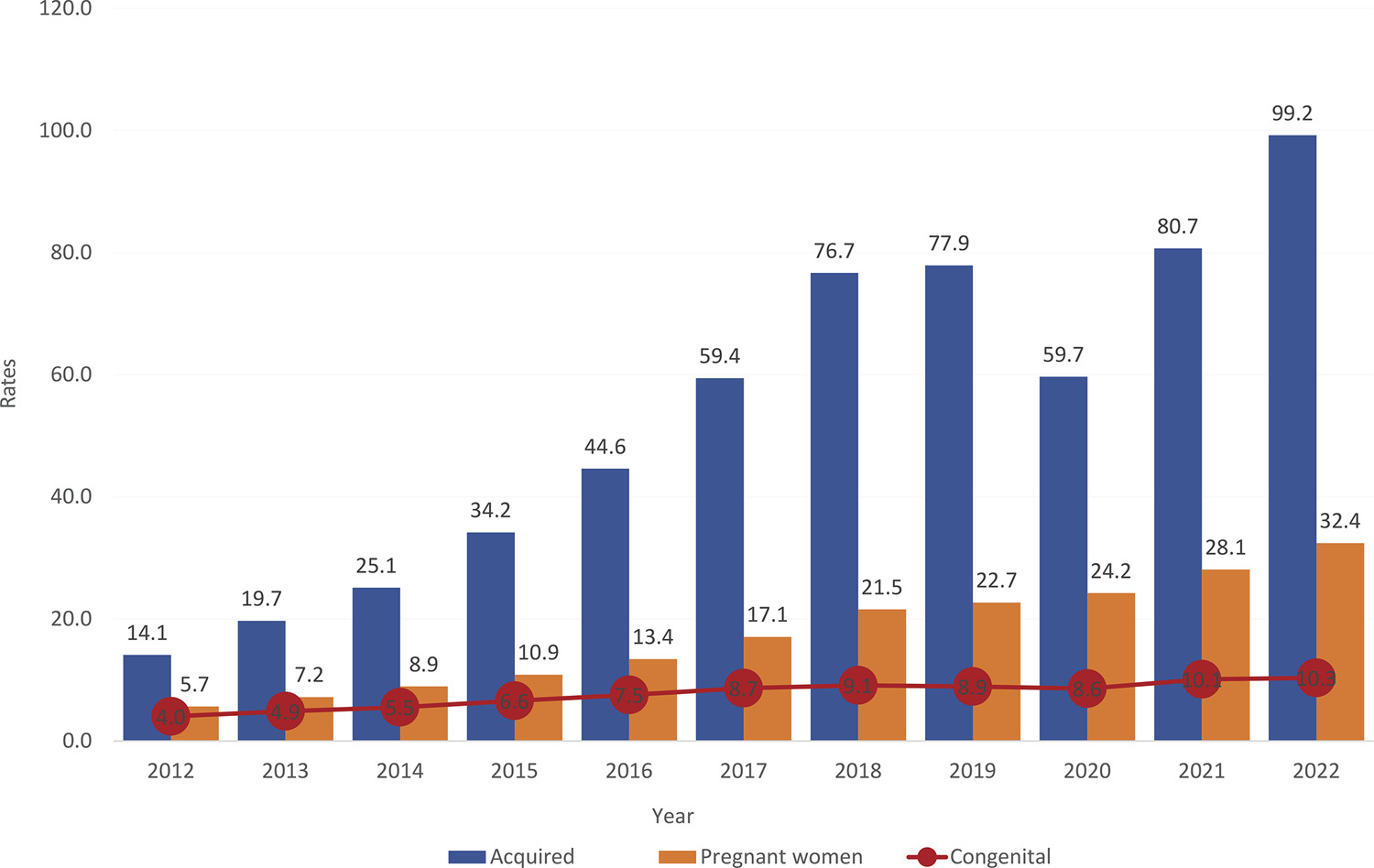-
FEBRASGO POSITION STATEMENT05-16-2025
Mayer-Rokitansky-Kuster-Hauser syndrome
Revista Brasileira de Ginecologia e Obstetrícia. 2025;47:e-FPS4
Abstract
FEBRASGO POSITION STATEMENTMayer-Rokitansky-Kuster-Hauser syndrome
Revista Brasileira de Ginecologia e Obstetrícia. 2025;47:e-FPS4
Views98See moreKey points
•Mayer-Rokitansky-Kuster-Hauser syndrome (MRKH) is the leading cause of vaginal agenesis.
•It is characterized by primary amenorrhea with typical adrenarche and telarche and may be associated with congenital urological and skeletal conditions that should be investigated.
•Differential diagnoses include: vaginal obstructions (imperforate hymen, distal vaginal atresia, transverse vaginal septum), uterine obstructions (cervical atresia), and differences in sexual development (gonadal dysgenesis, complete androgen insensitivity and congenital adrenal hyperplasia due to CYP17 deficiency).
•Laboratory tests (testosterone, follicle-stimulating hormone [FSH] and karyotype) and radiological tests (pelvic ultrasound and MRI) are necessary.
•Vaginal dilation is the first line of treatment with high success rates.

-
FEBRASGO POSITION STATEMENT03-28-2025
Follow-up of women after gynecological cancer treatment
Revista Brasileira de Ginecologia e Obstetrícia. 2025;47:e-FPS3
Abstract
FEBRASGO POSITION STATEMENTFollow-up of women after gynecological cancer treatment
Revista Brasileira de Ginecologia e Obstetrícia. 2025;47:e-FPS3
Views204See moreKey points
•The population of female cancer survivors has increased over the last few years, highlighting the importance of appropriate follow-up of these patients.
•The main objective of long-term follow-up for patients treated for cancer is the early detection of recurrences, whether local, lymph node or distant metastases.
•Symptom assessment and physical examination play an important role in the follow-up of patients treated for gynecological neoplasms.
•The use of laboratory or imaging tests to detect recurrence in asymptomatic patients should be based on evidence that it improves survival or provides less morbid treatments, also considering cost and availability.
-
FEBRASGO POSITION STATEMENT03-18-2025
Use of synthetic slings in the treatment of female stress urinary incontinence: Number 2 – 2025
Revista Brasileira de Ginecologia e Obstetrícia. 2025;47:e-FPS2
Abstract
FEBRASGO POSITION STATEMENTUse of synthetic slings in the treatment of female stress urinary incontinence: Number 2 – 2025
Revista Brasileira de Ginecologia e Obstetrícia. 2025;47:e-FPS2
-
FEBRASGO POSITION STATEMENT02-06-2025
Menopause in gynecologic cancer survivors: evidence for decision-making
Revista Brasileira de Ginecologia e Obstetrícia. 2025;47:e-FPS1
Abstract
FEBRASGO POSITION STATEMENTMenopause in gynecologic cancer survivors: evidence for decision-making
Revista Brasileira de Ginecologia e Obstetrícia. 2025;47:e-FPS1
Views271See moreKey points
• Although advances in the treatment of gynecological cancer have improved survival rates, they may also increase the effects of induced menopause, especially in young women.
• Cancer treatments such as oophorectomy, gonadotoxic chemotherapy, and pelvic radiotherapy can induce menopause.
• Gonadotoxic chemotherapy, especially alkylating-containing regimens, often damages ovarian function and may result in permanent menopause.
• Pelvic radiotherapy usually results in permanent loss of ovarian function unless ovarian transposition is performed.
• Diagnosing menopause after cancer is challenging, and common diagnostic criteria such as 12 months or more of amenorrhea and elevated follicle-stimulating hormone (FSH) levels are not entirely reliable, since ovarian function may return years after treatment.
• A multidisciplinary approach to post-cancer menopause is essential and should include an appropriate line of care, since hormone replacement therapy after treatment of gynecologic malignancy is controversial.

-
FEBRASGO POSITION STATEMENT11-25-2024
Nonclassic congenital adrenal hyperplasia due to 21-hydroxylase deficiency in women: diagnosis and treatment: Number 11 – 2024
Revista Brasileira de Ginecologia e Obstetrícia. 2024;46:e-FPS11
Abstract
FEBRASGO POSITION STATEMENTNonclassic congenital adrenal hyperplasia due to 21-hydroxylase deficiency in women: diagnosis and treatment: Number 11 – 2024
Revista Brasileira de Ginecologia e Obstetrícia. 2024;46:e-FPS11
-
FEBRASGO POSITION STATEMENT11-14-2024
Challenges and strategies in adolescent vaccination: Number 12 – 2024
Revista Brasileira de Ginecologia e Obstetrícia. 2024;46:e-FPS12
Abstract
FEBRASGO POSITION STATEMENTChallenges and strategies in adolescent vaccination: Number 12 – 2024
Revista Brasileira de Ginecologia e Obstetrícia. 2024;46:e-FPS12
-
FEBRASGO POSITION STATEMENT10-15-2024
Immunization in women’s lives: present and future
Revista Brasileira de Ginecologia e Obstetrícia. 2024;46:e-FPS10
Abstract
FEBRASGO POSITION STATEMENTImmunization in women’s lives: present and future
Revista Brasileira de Ginecologia e Obstetrícia. 2024;46:e-FPS10
Views301See moreKey points
•The negative impact of infectious diseases and their immunoprevention during the different stages of a woman’s life requires a broad approach including adolescence, adulthood, pregnancy and the postmenopausal phase.
•Immunization of pregnant women should be a priority for the protection of the maternal-fetal dyad, especially in regions with high rates of infections preventable by immunization.
•Brazil has one of the most comprehensive vaccination programs in the world – the National Immunization Program (Programa Nacional de Imunizações, PNI) – that serves all age groups: newborns, children, adolescents, adults, pregnant women and older adults, as well as groups with special needs, such as adolescents, pregnant and older adult women.
•However, vaccination coverage remains below ideal for all available vaccines, especially among adolescents and pregnant women, and Febrasgo is committed to collaborating with the PNI to combat vaccine hesitancy.
•The gynecologist/obstetrician is the reference physician for women, therefore the access to information and updates regarding all vaccines recommended for their patients is extremely important for this professional, aiming at the greatest possible protection.
•The objective of this Febrasgo Position Statement is to bring an update to women’s vaccination schedule, covering some vaccines that are available, including new approved vaccines and those in the commercialization phase.
•This work is a compilation of the First Febrasgo Scientific Immunization Forum held in the city of São Paulo in October 2023 with the objective to update recommendations for vaccines in use and new innovative vaccines soon to be available.
-
FEBRASGO POSITION STATEMENT09-23-2024
Syphilis and pregnancy
Revista Brasileira de Ginecologia e Obstetrícia. 2024;46:e-FPS09
Abstract
FEBRASGO POSITION STATEMENTSyphilis and pregnancy
Revista Brasileira de Ginecologia e Obstetrícia. 2024;46:e-FPS09
Views348See moreKey points
•Although congenital syphilis has a known etiological agent, accessible diagnosis and low-cost, effective treatment with low fetal toxicity, it continues to challenge obstetric and antenatal care services.
•The increasing rates of syphilis in the general population have direct repercussions on the increase in cases of congenital syphilis, a situation of objective interest for public health.
•Although transforming the recording of syphilis and congenital syphilis into notifiable diseases improved the records and has made it possible to measure the occurrence of these diseases and create solutions, no effects on reducing their frequency have been reached yet.
•The failure to control syphilis/congenital syphilis is multifactorial, and associates variables that range from the deficiency in teaching about these diseases in schools and in the training system of the various health professional segments, as well as the lack of rigid policies for quality control from antenatal care until the clinical follow-up of children exposed to Treponema pallidum during pregnancy.
•To date, benzathine penicillin is the only antimicrobial accepted as effective by the main health authorities on the planet for the treatment of syphilis in pregnant women.
•The fear of anaphylaxis in response to the treatment of syphilis with benzathine penicillin is an important factor hindering the prompt and correct treatment of pregnant women with syphilis, even though health authorities have made efforts to face the problem with solid arguments, still insufficient to resolve the question.
•Although specific protocols are published, the failure to control the treatment of syphilis in pregnant women is still observed with high frequency, indicating and reinforcing a failure in the quality control of these care principles.
The National Specialized Commission on Infectious Diseases of the Brazilian Federation of Gynecology and Obstetrics Associations (Febrasgo) endorses this document. Content production is based on scientific evidence on the proposed topic and the results presented contribute to clinical practice.



